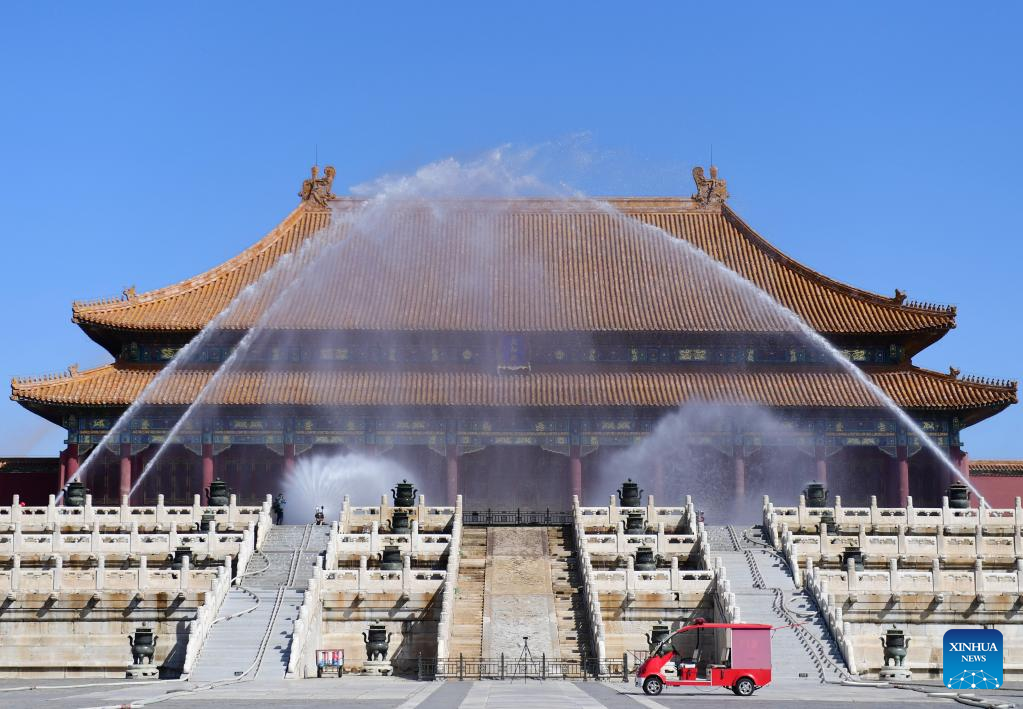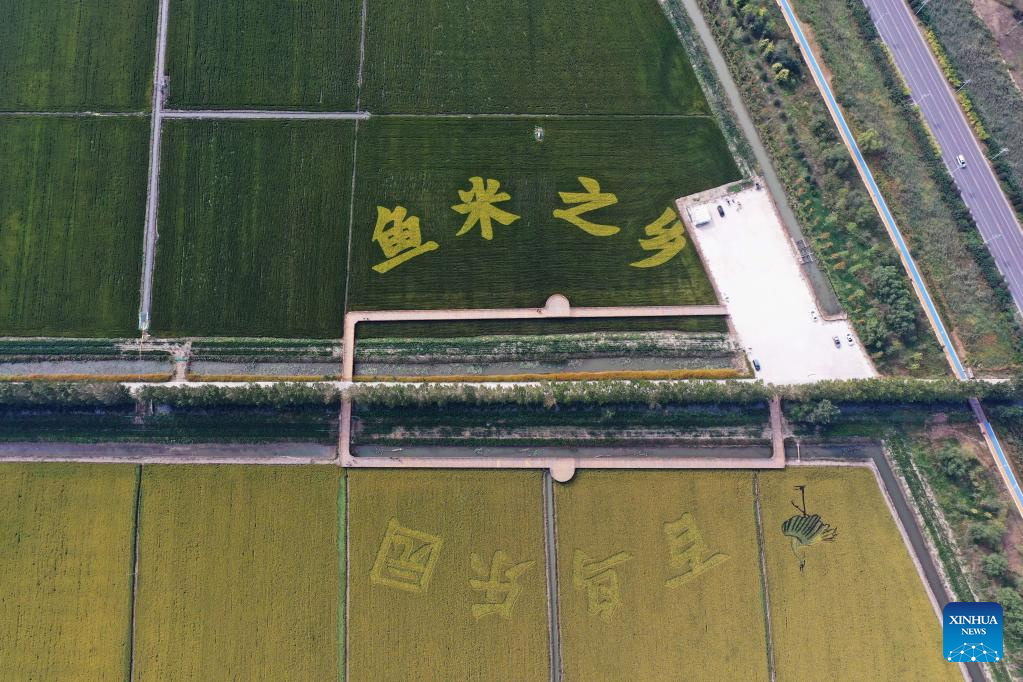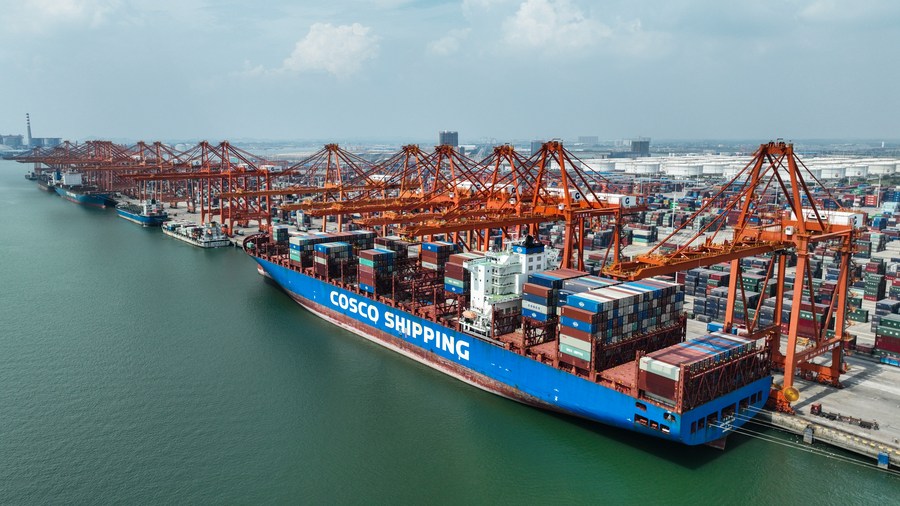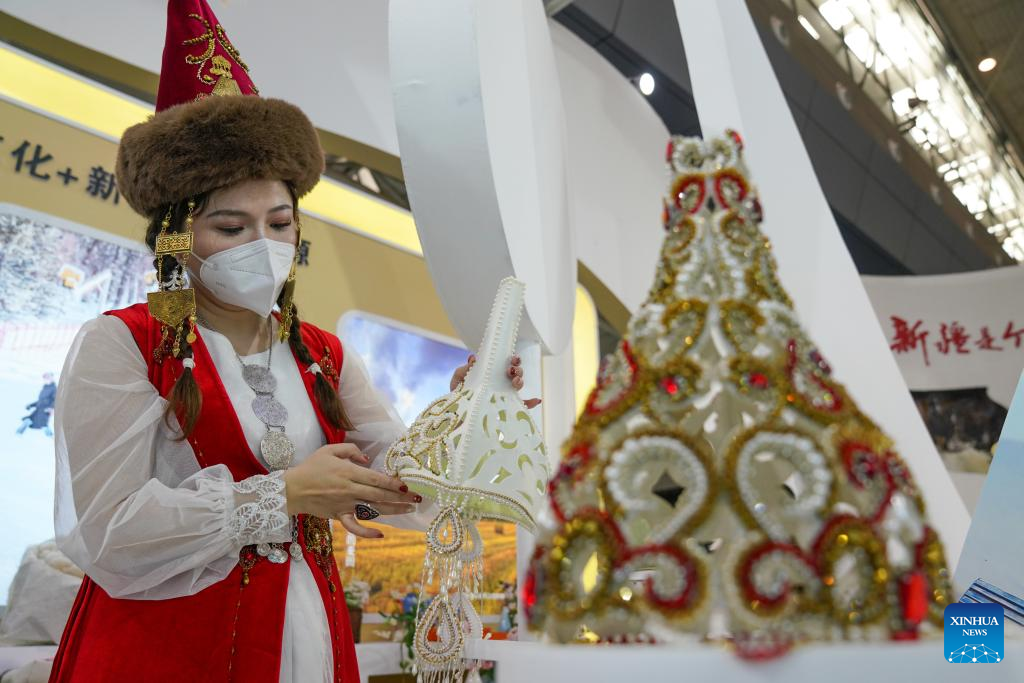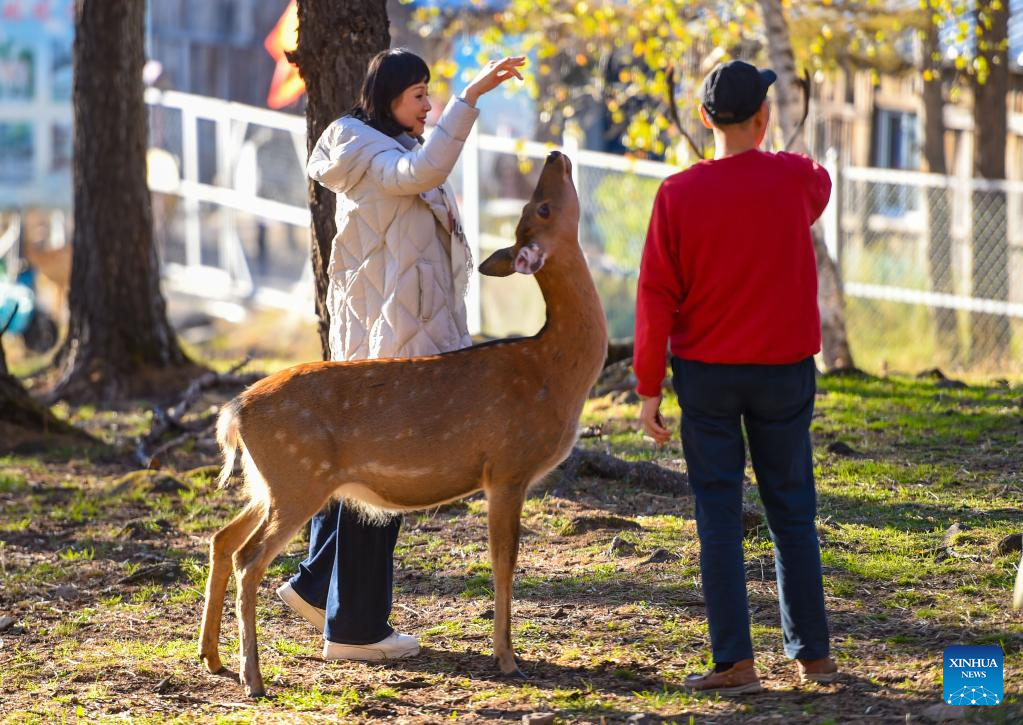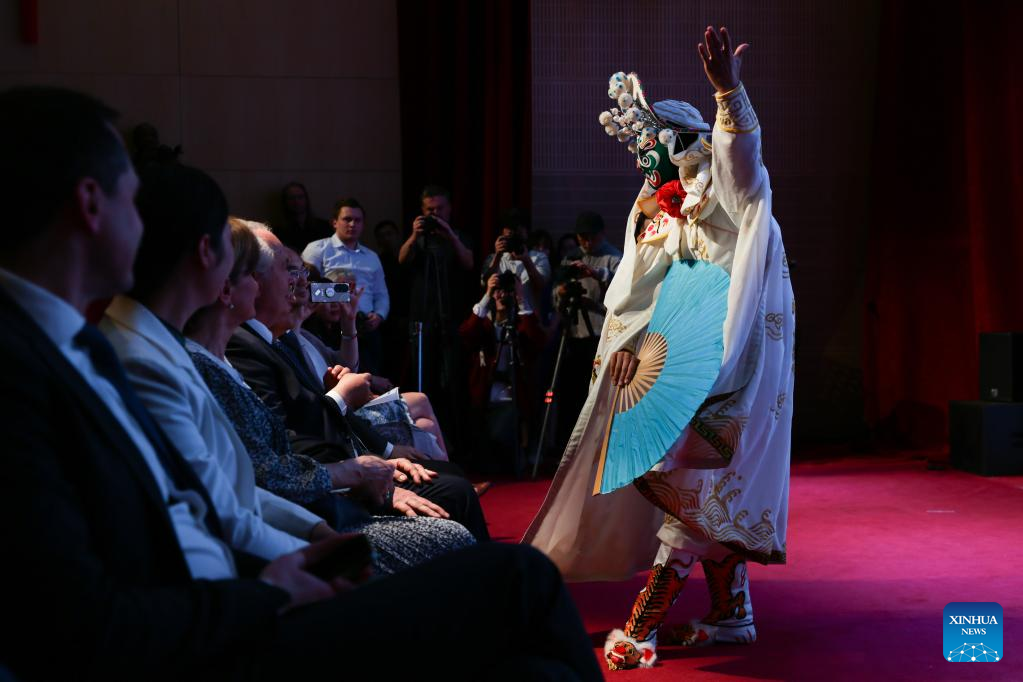
An actor performs art of face-changing during an opening ceremony of Yaji Cultural Salon "Tea for Harmony" at China Cultural Center in Brussels, Belgium, on May 4, 2023. A cultural salon focusing on traditional Chinese tea making techniques and social practices will open to the public on Friday after an opening ceremony held Thursday at the China Cultural Center in Brussels. (Xinhua/Zheng Huansong)
BRUSSELS, May 4 -- A cultural salon focusing on traditional Chinese tea making techniques and social practices will open to the public on Friday after an opening ceremony held Thursday at the China Cultural Center in Brussels.
Prestigious guests attending the ceremony were invited to delve into Chinese culture through tea ceremonies, elegant dances, exhibitions and music.
Open until June 9, the event known as Yaji Cultural Salon "Tea for Harmony" will acquaint guests with different tea varieties from 15 Chinese provinces, including green, black, white, dark and yellow tea. The tea ceremonies are accompanied by an exhibition on the history of Chinese tea and the role it plays in people's lives today.
Yaji, which means "gathering all that is elegant" in Chinese, was a common way for ancient Chinese scholars to collectively enjoy their cultural heritage. The event aims to celebrate the inclusion of "traditional Chinese tea processing techniques and associated social practice in China" on the Representative List of the UNESCO Intangible Cultural Heritage of Humanity in November 2022.
It will also mark the "International Tea Day," which is due on May 21.
But above all, it is "a reflection of Chinese culture which attaches great importance to peace, elegance and harmony between man and nature," Cao Zhongming, Chinese ambassador to Belgium, told the event at the ceremony.
Chinese tea has been traded all over the world for 2000 years, first via the ancient Silk Road stretching from Chang'an (the ancient capital of China) to Rome, Italy. The cargoes travelled a long way through the countries of Central Asia.
"The ancient Silk Road promoted communication and trade, but also cultural exchange between China and other countries. Chinese tea was one of the most important products traded along the Silk Road," Cao said.
"Cultural and economic cooperation between states is the basis for peace, for Europe and for the whole world. I think this exhibition showcases for the people of Europe and around the world how to live together," Miroslav Radacovsky, a member of the European Parliament, told Xinhua at the opening event.

